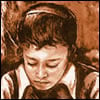Forty years ago in 1976, the Lubavitcher Rebbe—Rabbi Menachem M. Schneerson, of righteous memory—launched Mivtzah Chinuch, an ongoing global campaign to provide Jewish education to every Jewish person of every age. This is part of a series of articles appearing throughout the school year on the worldwide network of Chabad-Lubavitch educational institutions today.
For many young Jewish families in Brooklyn Heights—a neighborhood directly across the East River from Lower Manhattan—Kiddie Korner is the “go to” preschool in the area. The Chabad-run school is so popular that for some time now, there has been a waiting list to get in.
Rabbi Ari Raskin, director of Chabad of Brooklyn Heights, notes that a similar high-quality experience is now being offered to another age level with the burgeoning Brooklyn Heights Jewish Academy, or BHJA.
The elementary school launched last fall with a handful of kindergarteners; this fall, it will begin first grade, with plans to continue to add a grade each year.
“We have run a preschool for 25 years, and parents would say to me, ‘If you had an elementary school, I would send my kids,’ ” says the rabbi, who is also dean of the day school.
The problem, he explains, was that there wasn’t a large enough base from which to recruit students. For some families, that meant sending their children on buses or trains to Manhattan or other parts of Brooklyn for their Jewish education.
Demographics over the last decade or more—not just in Brooklyn Heights, but in neighboring areas like Cobble Hill, Park Slope and Prospect Park—have changed the landscape. Young families have moved in, attracted by housing options, green space and a bit of a slower pace than other parts of the city. The U.S. Census Bureau estimates that the immediate area surrounding the school, for instance, has grown to some 56,000 from 47,000 since 2000.

And with young children comes the pull towards spiritual life.
Maayan Zik knows the educational benefits of a good private school and wanted that kind of quality program for her two young sons, but with a strong Jewish component.
“Education is very important, and that initial foundation you get as a kid is important to who you will become as an adult—your sense of integrity, and going out in the world and being a good person,” says Zik, who will have both a kindergartner and a first-grader in the school this year. “I want them to have a great foundation of education in school and also a great spiritual foundation, and BHJA does that very successfully.”
“With more and more families going to Chabad Houses and getting inspired by Yiddishkeit, there should be a place that inspires them to grow,” says Raskin, adding that the Brooklyn Heights Jewish School is open to families from all Jewish backgrounds and observance levels.
“We want to give a wholesome and rich education. We want a child to be confident, have strong Jewish pride and be intellectually satisfied,” he says. “We want them to be inquisitive, and have a desire to ask questions and seek out knowledge.”

‘Knowing Their Heritage’
To that end, the school is utilizing what officials say is an “integrated curriculum,” where the secular studies complement the Judaic lessons.
As Raskin explains, “If we are learning about Noah and the flood, for example, we might explore the idea of buoyancy and mathematical equations of floating. The idea is to make learning very real,” connecting Judaism to the everyday world.

Having that kind of connection, says head of school Marina Pinkhasik, will only help the school academically. “Students are getting the best of both worlds,” she says. Noting that her own children—two boys, ages 2 and 4—attend Kiddie Korner, Pinkhasik says she was eager to come onboard when she first heard about the school.
“I grew up in Ukraine, where religion was forbidden, and I didn’t know the holidays and the Jewish tradition. I came to it later in life, and I want my children to grow up knowing their heritage,” she explains.
In addition to strong academics, the school is also committed to community service and helping out locally, says Pinkhasik.

Brooklyn Heights Jewish Academy is housed in a newly renovated building one block away from a park and three blocks away from the popular Pier 6 at Brooklyn Bridge Park. With a maximum class size of 15, each student is certain to get individualized attention, which is crucial to the school’s philosophy.
Raskin notes that the Lubavitcher Rebbe—Rabbi Menachem Mendel Schneerson, of righteous memory—emphasized the Torah teaching Chanoch lanaar al pi darko (Proverbs 22): “Educate a child according to his [or her] way.” That is what the school strives to do.
Tuition runs about $21,000, which is on par with other private schools in the area. Administrators stress that financial aid is available.
Raskin says the goal—the school’s philosophy—is “to give kids a love of Yiddishkeit.”
Brooklyn Heights Jewish Academy will hold a grand opening and ribbon-cutting ceremony at noon on Sept. 18. Click here.
Read the first article in the series: South Carolina Community Steps Up to Make Free Jewish Day School Possible











Start a Discussion